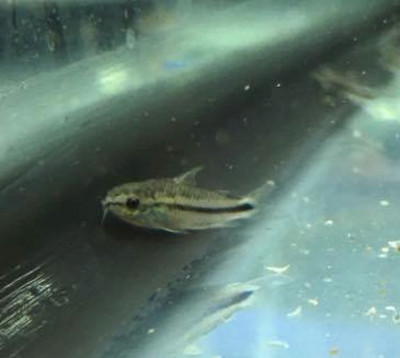Pygmy Corydoras
Posted by Max Gandara on on 28th Aug 2024
The Pygmy Corydoras: A Delightful Tiny Fish for Your Aquarium
If you’re looking to add a charming and active fish to your freshwater aquarium, the Pygmy Corydoras (Corydoras pygmaeus) is an excellent choice. Known for its small size and playful behavior, this little catfish can bring a touch of enchantment and liveliness to your tank. In this blog, we’ll explore the endearing qualities of the Pygmy Corydoras and provide essential care tips to help you maintain a thriving environment for these delightful fish.
1. The Appeal of the Pygmy Corydoras
The Pygmy Corydoras is celebrated for its small size, unique appearance, and engaging behavior. Its subtle beauty and active nature make it a standout addition to any freshwater tank.
Why It’s Special:
- Tiny Size: With an average length of just 1-1.5 inches (2.5-3.8 cm), the Pygmy Corydoras is one of the smallest species of corydoras, making it ideal for smaller tanks or community setups.
- Charming Appearance: These catfish have a sleek, streamlined body with a light, almost translucent coloration, often featuring subtle spots or patterns. Their small size and cute appearance add a touch of elegance to your tank.
2. Understanding Its Behavior
The Pygmy Corydoras is not only loved for its appearance but also for its fascinating behavior. Observing these little fish can add a delightful dynamic to your aquarium.
Key Behavioral Traits:
- Bottom-Dweller: Pygmy Corydoras are bottom-dwellers, spending much of their time foraging along the substrate. Their small size and active nature make them excellent at scavenging for leftover food and keeping the tank clean.
- Social Fish: These fish are social and thrive in groups. It’s best to keep them in schools of at least 6-8 individuals to ensure they feel secure and exhibit natural behaviors.
- Playful Nature: They are known for their playful and active behavior, often seen darting around and interacting with one another, adding constant movement and interest to the bottom of your tank.
3. Essential Care Tips
To ensure your Pygmy Corydoras remains healthy and vibrant, it’s crucial to provide the right environment and care. Here’s what you need to know:
Tank Requirements:
- Size: A tank of at least 10 gallons is recommended, although larger tanks provide more stability and space for a group of Pygmy Corydoras.
- Water Conditions: They thrive in stable freshwater environments with temperatures between 72-78°F (22-26°C) and a pH level of 6.0-7.5. Regular water changes and good filtration are essential to maintain water quality.
Diet:
- Feeding: Pygmy Corydoras are omnivorous and will accept a variety of foods. Offer high-quality sinking pellets, micro pellets, and occasional live or frozen foods like bloodworms or daphnia to provide a balanced diet.
Habitat:
- Substrate: A soft substrate like sand or fine gravel is ideal, as it is gentle on their sensitive barbels and allows them to forage comfortably.
- Plants and Decorations: Include plants, driftwood, and small rocks to create a natural and enriching environment. These features provide hiding spots and mimic their natural habitat, helping to reduce stress.
4. Social Dynamics
Pygmy Corydoras are best kept in schools due to their social nature. They are peaceful and can coexist with other small, non-aggressive fish. Avoid housing them with larger or aggressive species that might intimidate them.
5. Benefits to Your Aquarium
Adding Pygmy Corydoras to your tank not only enhances its visual appeal with their charming appearance and playful behavior but also contributes to the overall cleanliness of the tank by scavenging for leftover food.
The Pygmy Corydoras (Corydoras pygmaeus) is a delightful and endearing addition to any freshwater aquarium. With its small size, charming appearance, and active behavior, it offers both beauty and functionality. By providing the appropriate care and environment, you can enjoy the playful and engaging nature of these remarkable fish for years to come.

